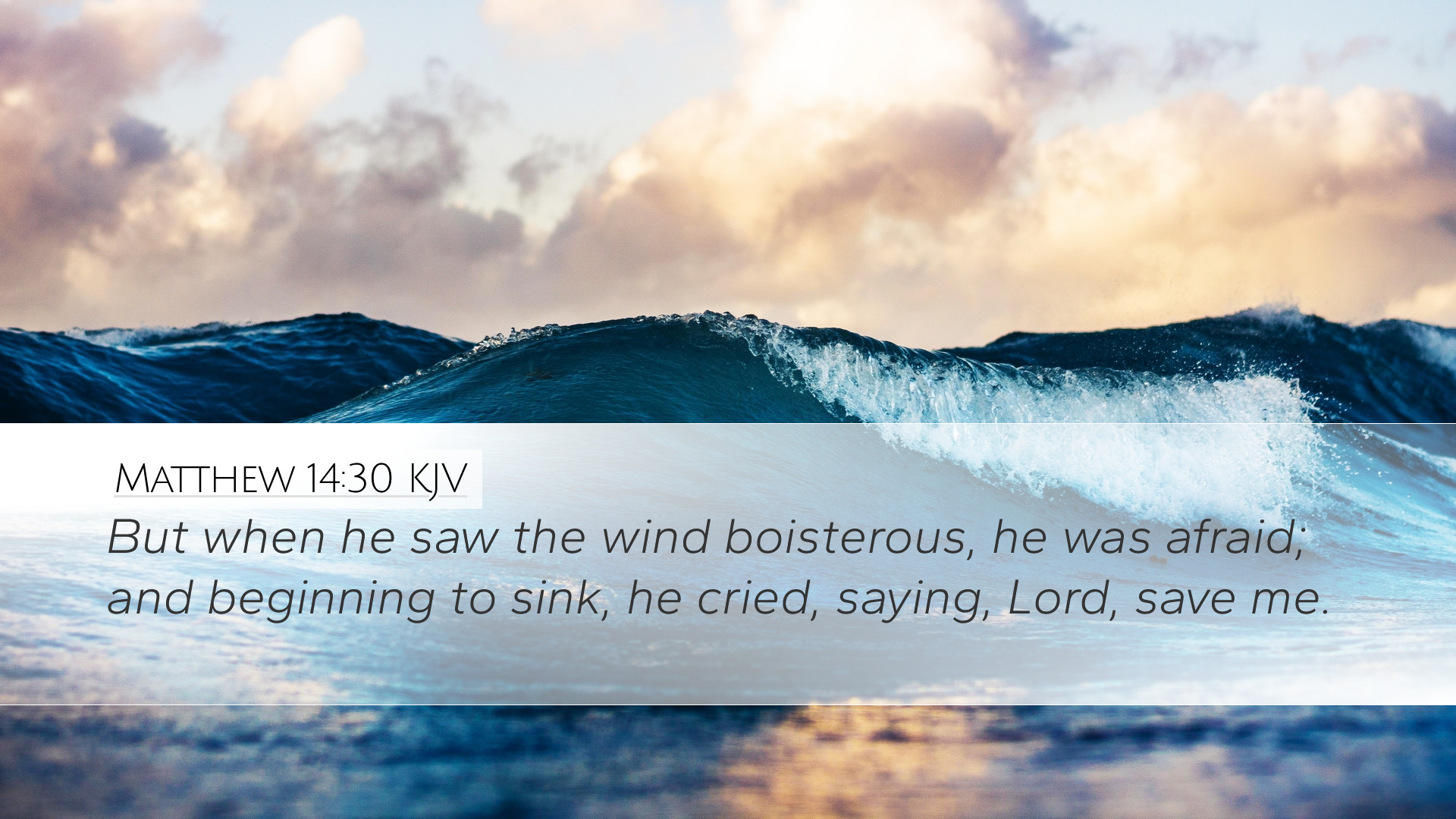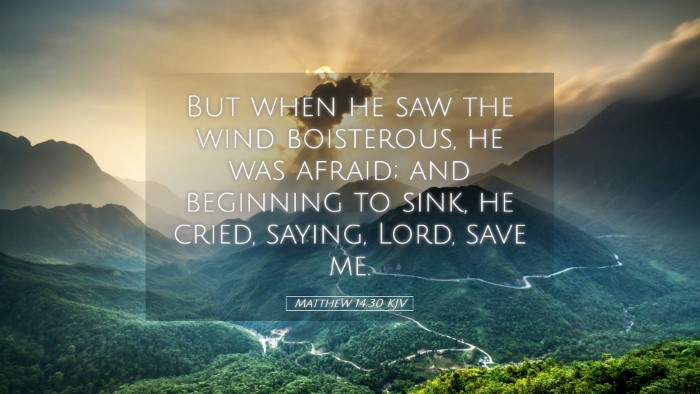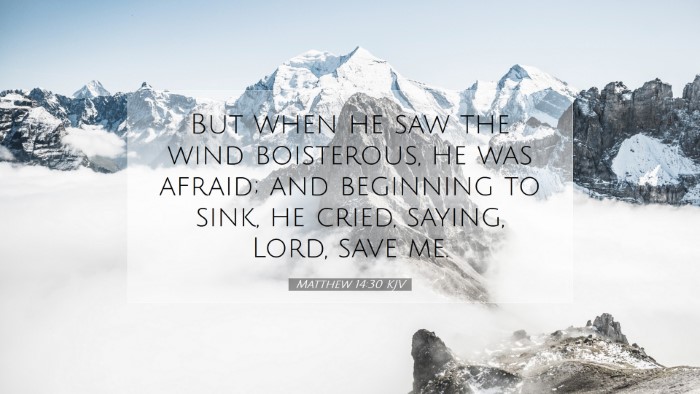Commentary on Matthew 14:30
Verse Reference: Matthew 14:30 - "But when he saw the wind, he was afraid; and beginning to sink, he cried, saying, Lord, save me."
Introduction
This verse captures a moment of profound human emotion and spiritual truth. The context in which Peter walks on water and subsequently begins to sink provides a rich landscape for theological reflection. In summarizing insights from esteemed public domain commentaries, we will explore Peter’s fear, the nature of faith, and the implications of this passage for believers today.
Context of the Passage
Prior to this incident, the disciples are in a boat, struggling against the wind and waves. Jesus approaches them, walking on the water. Peter, ever impulsive, requests to join Him, and upon receiving Jesus’ invitation, steps out of the boat. This scenario metaphorically sets the stage for the tension between faith and fear.
Peters Fear and Faith
1. The Nature of Fear: As Peter begins to walk on water, his focus is initially on Christ. However, upon noticing the wind, his gaze shifts away from Jesus to the tumult around him. According to Matthew Henry, this shift signifies how fear can easily obstruct our faith. Henry states, “Fear is the natural enemy of faith; when we behold the storms of life too intently, we may falter and sink.”
2. The Role of Faith: Albert Barnes emphasizes that faith requires a focus on Jesus, highlighting that Peter walked on water as long as his faith remained steadfast. He writes, “Peter's faith permitted him to walk on the surface of the water, showcasing that faith empowers us to transcend natural limitations.” The moment Peter's attention diverts to the winds, his faith diminishes, and he begins to sink.
Theological Reflections
1. Trust in Adversity: This passage showcases an essential teaching about trust in times of adversity. Adam Clarke articulates that this can serve as a reminder that despite the storms we face, maintaining our focus on Christ is vital for spiritual resilience. Clarke comments, “The power of Christ to save is ever-present, and recognizing our need for His intervention is often the beginning of salvation.”
2. The Spiritual Lesson: The act of crying out to Jesus encapsulates the believer's need for dependence on God. In Peter's desperate plea, "Lord, save me," we find a model for prayer in crises. Matthew Henry notes, “There is no greater heart's cry than that for divine intervention. In our helplessness, we find the readiness of the Lord to assist.” This reflects the overarching theme of divine grace, offering profound insights for those in pastoral care.
Practical Applications
1. Maintaining Focus: Believers are encouraged to maintain their focus on Jesus amid the trials of life. As Barnes notes, “The world’s turbulence, like the wind, often distracts us; yet by fixing our gaze on Christ, we can navigate through life's stormy seas.” Pastors can draw from this when counseling congregants experiencing crises.
2. Acknowledging Human Weakness: The narrative invites believers to acknowledge their human frailty. Adam Clarke highlights the importance of recognizing our vulnerabilities, reminding us that, “In our weakness, we discover the strength and faithfulness of God.” This understanding can foster humility and a willingness to seek divine help.
Conclusion
Matthew 14:30 serves as a rich source of reflection on faith, fear, and dependence on Christ. The interplay between Peter's faith and his subsequent fear illuminates critical truths about the human experience of faith in turbulent times. Drawing on the insights of Matthew Henry, Albert Barnes, and Adam Clarke, this passage encourages believers to keep their eyes fixed on Jesus, recognizing that in moments of sinking, a sincere cry for salvation leads to a divine response. May this teaching resonate within the hearts of pastors, students, theologians, and scholars alike, inspiring a deeper trust in God's unwavering support during life's tempests.


